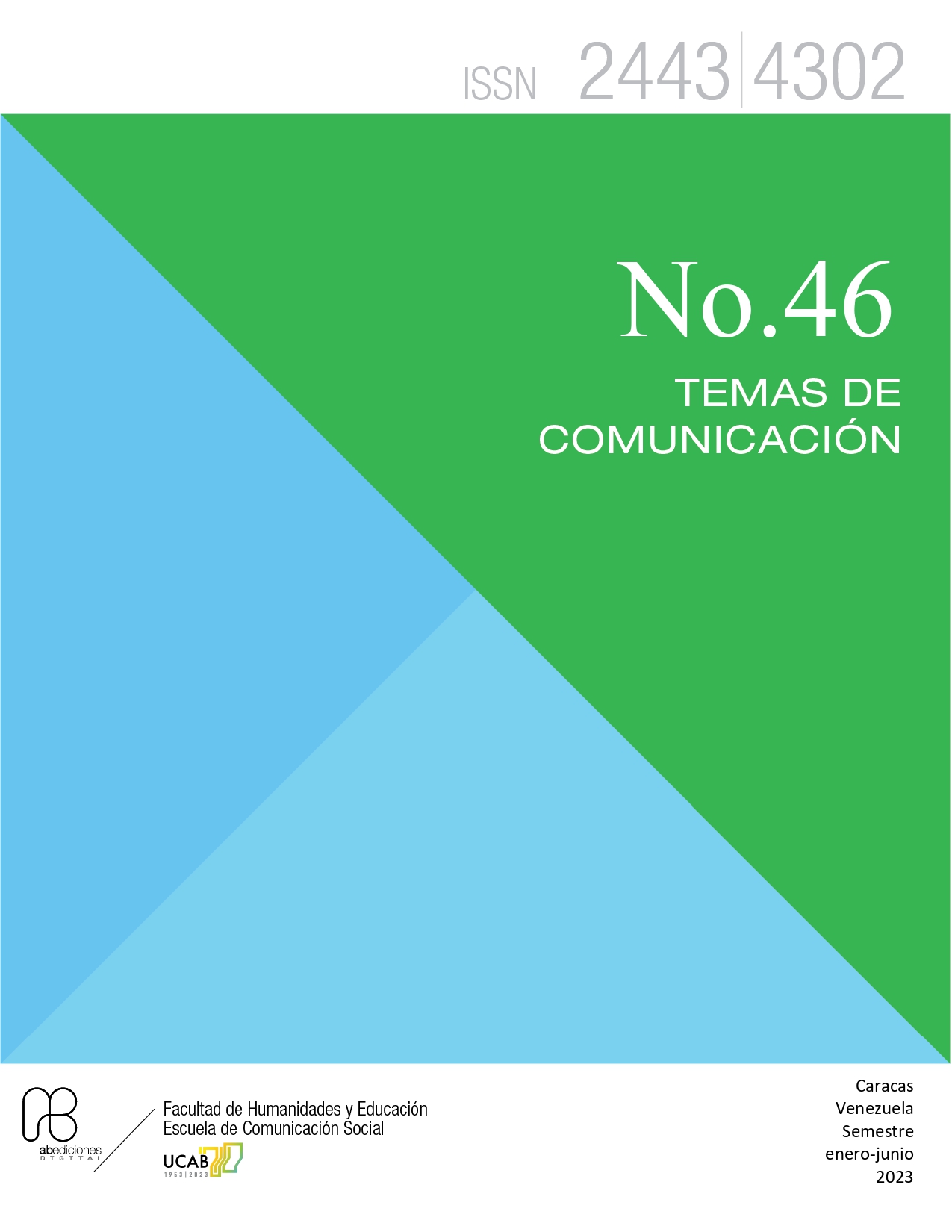Algorithmic manipulation and psychosocial bias in social networks
DOI:
https://doi.org/10.62876/tc.vi46.6219Keywords:
manipulation, algorithm, biases, social networks, psychosocialAbstract
The traditional and critical conception of manipulation is often reductive and simplifying, but is now re-emerging with emerging technologies. However, in the face of the manipulation of the real or vicarious other induced by algorithmic bias, there is also our individual or psychosocial bias. It is undeniable that the capacity for real manipulation has been immeasurably enhanced by some use of social networks, but it has operated, at times, on pre-existing bias tendencies. Social and communicational problems have acquired such a high degree of complexity that they demand, now more than ever, the abandonment of any kind of monocausalism and determinism. Without subscribing to a naive thesis of technological neutrality, we can say that social network platforms are multivalent and merit alternative management modalities, with algorithms that incorporate other data and other instructions.
Downloads
References
Aguilar, Alexandra y Morelos, Luis (2018). Los sesgos cognitivos y su función en la cognición social. PERSEO. Programa Universitario de Derechos Humanos. Universidad Autónoma de México. No. 68. Octubre 2018. Disponible en: http://www.pudh.unam.mx/perseo/los-sesgos-cognitivos-y-su-funcion-en-la-cognicion-social-2/
Castellanos, Nazareth (2021). El espejo del cerebro. Madrid: La Huerta Grande.
Díaz Arana, Andrés Felipe (2020). La culpabilidad más allá de la neurociencia. ¿Qué sigue? Revista Mexicana de Ciencias Penales. Vol. 3 Núm. 12 (2020): Neurociencia y derecho penal / Abogado y filósofo por la Universidad de los Andes. Doctorando en Derecho en la Universidad Pompeu Fabra (España). Disponible en:https://revistaciencias.inacipe.gob.mx/index.php/02/article/view/364
Ferro, Ramón (06.01.2022). Los sesgos cognitivos y la anatomía de la intolerancia. TEDxMarDelPlata. Médico, neurólogo y escritor. Columna sobre #neurocultura en InfobaeCultura.. Disponible en: https://www.youtube.com/watch?v=GeqSIg9eN4M
García-Campos, Jonatan; Sarabia-López, Saúl; Hernández-Chávez,Paola (2022). Tres grandes enigmas de los sesgos. SCIO. Revista de Filosofía, n.º 22, Julio de 2022, 99-125. Disponible en: https://revistas.ucv.es/scio/index.php/scio/article/view/1031
Guzmán Sescosse, Mario (15.05.2022). Sesgos cognitivos y su abordaje desde la terapia cognitivo-conductual. Doctorado Interinstitucional en Psicología con numerosos postgrados. Profesor e investigador del Trinity Christian College en Chicago EUA. Disponible en: https://www.youtube.com/watch?v=ze2su88gjGs
Harari, Juval Noah (2018) .21 Lecciones para el siglo XXI.Barcelona: Debate.
(2020). ENTREVISTA. “Por primera vez en la historia los ricos serán una especie diferente”. Global conversation. Euronews. Disponible en: https://www.youtube.com/watch?v=RUIKxDwXnRM
(2021) En Perspectiva. A favor y en contra de Yuval Noah Harari. Mesa de filósofos. Maza, Javier; Pastorino, Miguel et al. Disponible en:https://www.youtube.com/watch?v=08Wd8zqW6X4
Klapper, J.T. (1974). Efectos de las comunicaciones de masas. Madrid: Aguilar.
Kreimer, Roxana (05.12.2021). Las distorsiones cognitivas. Escritora, Lic. en Filosofía y Doctora en Ciencias Sociales por la Universidad de Buenos Aires. Disponible en: https://www.youtube.com/watch?v=oIoOtmxwmR8
Latour, Bruno (2008). Reensamblar lo social. Una introducción a la teoría del actor-red. Buenos Aires: Manantial.
(2020).El estado de la naturaleza. Valparaíso: Universidad de Valparaíso, 2014. https://www.youtube.com/watch?v=uvHiLPJtWFE
Downloads
Published
How to Cite
Issue
Section
License
Copyright (c) 2023 Temas de Comunicación

This work is licensed under a Creative Commons Attribution-NonCommercial-ShareAlike 4.0 International License.


